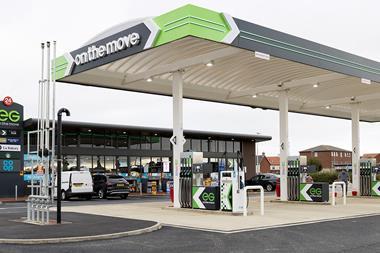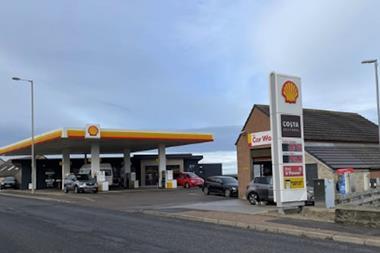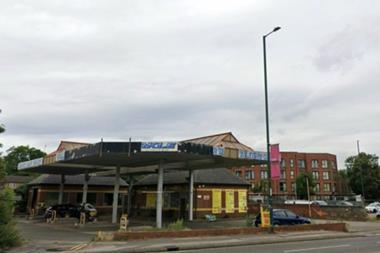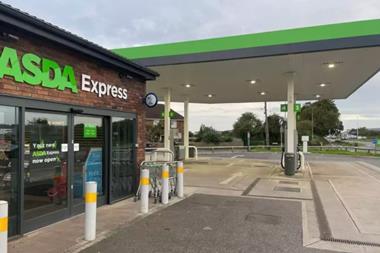Roadside retail has become the new high street. So says Adam Wadlow, director at property advisors Barber Wadlow. "We have become convenience junkies where we want everything now or very quickly. That’s why we’re seeing new petrol stations with Costa, Starbucks and other food-to-go outlets, whether they’re incorporated in the store or are standalone units adjacent to the forecourt. Groups including Euro Garages and Applegreen are investing heavily in their retail offers."
Steve Rodell, managing director of retail at Christie & Co, says they sold more forecourts last year than ever and that was with the background of Brexit and the attention surrounding alternatively fuelled vehicles.
"As far as we’re concerned, the market continues to power on. The trading fundamentals are that fuel margins are good and shop sales are strong so petrol forecourts are still attractive. And there will be strong demand for them for some time to come."
Barber Wadlow’s Forecourt Property Market Index 2020 (page 32) reveals that forecourts have increased in value by 38% over the past five years.
David Collins, owner at Adlers, says the value of petrol filling stations is holding up well despite uncertainty in other markets. "While the market remains competitive, there are fewer genuine players and the days of silly offers have passed. However, there remains a limited number of opportunities available to purchase, so it is still a good time to buy and sell. Buyers are looking for sites that are sustainable in the long-term but have good alternative use potential. Sufficient plot size to accommodate EV charging is an increasingly important feature in most cases."
Wadlow says that a lot of people who didn’t have a succession plan have already sold up. "New-to-industry (NTI) fills a hole, but the procurement and acquisition process is very, very long-winded it can take two-to-three years."
According to Experian Catalist, independent retailers developed 17 NTI sites in the 12 months to June 2019, with oil companies only adding four NTI sites. The supermarkets also only added 12 new sites.
Barber Wadlow estimates that 175 forecourts changed hands in 2019. The year started with the completion of MFG’s divestment programme following its acquisition of MRH. A ruling from the Competition and Mergers Authority stated that it had to sell 38 sites, which it did to SGN Retail, NTS Retail, Grover Garages and Fellrock Ltd.
MFG then went on to snap up Simon Smith Retail’s seven sites and Symonds Retail’s 10 operational sites as well as its three new-to-industry development sites.
For Christie & Co, the highlight of 2019 was the conclusion of the sale of the Cornwall Garage Group, which attracted nine group bids as well as 100 offers for individual sites. This meant the Group had a choice of whom to sell to. In the end, the 17 sites went to the fast-growing Ascona Group.
Meanwhile, Wadlow says Philips 66’s acquisition of Harrogate Investments Limited demonstrates the continuing theme of fuel suppliers desire to build a retail platform. And Certas also acquired sites.
Rodell says there was a noticeable number of closed sites, that had closed maybe 15 years ago, that came back into commission. "There are a lot of opportunities there with a good return on investment," he explains.
"We didn’t see the churn from the super dealers in 2019 that we might have expected, but if their sites aren’t making a loss there is no reason to sell them," he adds.
Mark Frostick, senior associate in the automotive and roadside team at Rapleys, agrees: "In 2019 we saw some dealer group takeovers, but less of the really big deals that characterised the last few years. While most of the eye-catching mergers and acquisitions have probably happened, we expect to see some continued consolidation in the sector as the market rationalises in what is a highly competitive and challenging consumer market. At the same time, some of the larger independents have continued to expand overseas at least in part, perhaps, as a hedge against any negative impact Brexit might have in the future on the UK market."
Frostick says the real challenge continues to be a lack of stock in the market. "The difficulties in unlocking new sites vary from location to location for example, a trunk road site in a rural area may have the highest potential value but can face complexities when it comes to planning. Meanwhile, urban sites can face more competition from a variety of alternative uses both residential and commercial with drive thru restaurants likely to be the biggest competitor."
freehold demand
Frostick says: "Forecourt site values have continued to hold up particularly due to the lack of stock and competition for sites and the market is interested in good performing sites at every level. Freehold demand is stronger than leasehold, but we continue to see issues, particularly at the lower level, where deals have failed to get over the line in an appropriate timescale as parties have struggled to keep up the pace and momentum to complete.
"With competition for sites high, it is paramount that operators are equipped to move swiftly and those who use professional advisers and solicitors with petrol station experience will always be better placed.
"At least partly as a consequence of limited property stock, we have seen operators looking at innovative ways to improve existing sites and fully utilise what space they have for example by expanding upwards to create a multi-storey forecourt retail offering."
As for electric vehicles, Frostick says that while there continues to be much discussion about the long-term impact of electric vehicle infrastructure on the forecourt industry this is yet to fully translate into notable and widespread innovation on site.
"According to a recent government announcement, there are now more charging points than petrol stations but, for the most part, operators so far have been simply squeezing in charging points on existing sites where they can.
"With the government now publishing league tables on electric infrastructure though and making new funding available for Local Authorities we may see the landscape begin to change, particularly as and when electric vehicles become more affordable and ubiquitous."
Forecourt Property Market Index 2020
Barber Wadlow’s Forecourt Property Value Index* (in association with Experian Catalist) recorded a 3% value increase in 2019, the eighth consecutive year of growth. The Index has now achieved a 38% increase over the past five years.
Barber Wadlow director, Adam Wadlow, says: "Capital value growth of petrol filling stations was witnessed in 2019, driven in part by enhanced profitability. The rate of growth at +3% was ahead of 2018 (+1%), but somewhat below the substantial levels of value appreciation recorded between 2013 and 2017.
"In addition to improved trading performance, a lack of supply of available businesses to buy is also underpinning values. Barber Wadlow estimate that 175 petrol filling stations were transacted in 2019, a 10% decline on 2018 (excluding the MFG/MRH transaction)."
The year started with the completion of MFG’s divestment programme then the Group acquired Simon Smith Retail, then Symonds Retail.
Wadlow says Philips 66’s acquisition of Harrogate Investments Limited demonstrated fuel suppliers’ desire to build a retail platform. And Certas also acquired sites.
"Single sites also continue to appeal to a wide range of buyers depending upon business type and geography. In 2019, Barber Wadlow sold/let single sites to Euro Garages, Welcome Break, Platinum Retail, Savile Petroleum and Gardner Garages."
Wadler says demand is also increasing for new-to-industry (NTI) development sites, despite their completion being a lenghty process.
Business rates revaluations set for 2021
Business rates remain a major overhead for petrol station occupiers, with annual liabilities pitched at approximately 50% of the hypothetical rental value.
Paul Sewell, managing director of MUA Property Services, says they also remain a barrier to investment, with any capital investment effectively also taxed at 50% of any rental improvement.
"The tax raises £31bn per annum, so it is not easily forgone and, being linked to property, collection rates are excellent. The Tories have promised a fundamental review, prompted by lobbying from retail sectors, and have now announced their intention to legislate for a 2021 revaluation for England and Wales." Sewell explains that the retail definition includes petrol stations and showrooms and currently enjoys (so long as the occupiers do not breach EU State Aid limits of 200k in any three years) one-third off their rates bills for this year and next on any Rateable Values under £51,000.
"An election pledge was to increase this retail discount to 50%.
"Should the 2021 revaluation proceed, we have the framework for an agreed valuation scheme with slight RV increases on forecourts, approximating to approximately 5% on sites which were level trading comparing 2014 to 2018."
The revaluation after that is currently planned for 2024.

































No comments yet